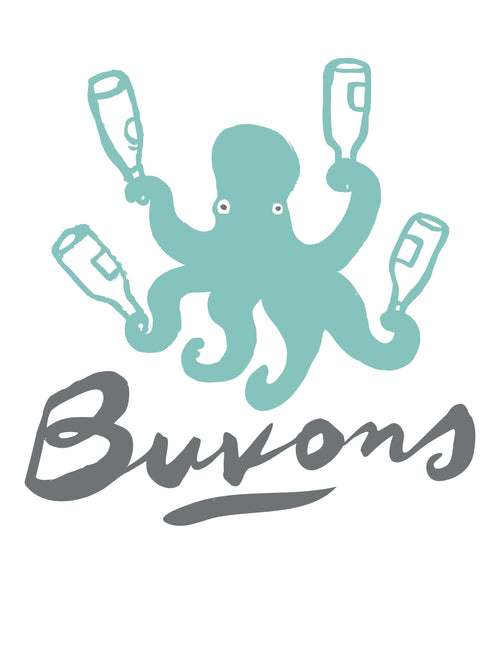Olivier Cousin "Le Franc"
Regular price $60.00
Unit price per
Grapes: Cabernet Franc
Region: Anjou, Loire, France
Vintage: 2021
Viticulture: Organic
Soils: Black loam infused with deep beds of limestone
Vinification: The grapes are hand-harvested, brought to the winery by a horse, destemmed, gently pressed, and undergo an extended maceration in large wooden tanks
Aging: 18 months in large, old wooden tanks
Fining or Filtering: None
Sulfur: None added
Notes from the Importer: Olivier Cousin has 12 hectares of vines in and around the village of Martigné-Briand, which is nestled in the fertile and generous Anjou part of Loire Valley. Since 2012, Olivier has passed most of these plots (planted with Gamay, Grolleau, Chenin Blanc, and Pineau d’Aunis) to his son Baptiste. Baptiste turns them into his own intriguing natural wines under the La Batossay label (that we also import), while Olivier focused only on the Cabernet Franc, his all-time favorite grape to vinify. (He was planning to plant some new Chenin and Grolleau plantations though, the last time we visited – à suivre!)
Olivier is one of the natural wine trailblazers not only in his region but for the whole natural wine movement. A true OG and farmer above all, he’s been plowing his vineyards only with his horses for a very long time (“before it was cool”, one could say). His wines have been made without any additives including sulfites since the 1980s, a decision that led to several remarkable fights with the French wine classification system back in the day.
Visiting Olivier in his big family house in the heart of Martigné-Briand is always a treat for both body and mind, providing you not only with living, enticing wines from Olivier’s cellar, but also with a lot of food for thought. Take it from our colleague Nick who spent a mind-changing week with Olivier a couple of years ago: “At first glance, Olivier Cousin can give a gruff impression. His grizzled grey beard, muddy rubber boots, and subdued demeanor suggest a man who seems to rise right out of the earth, plants and vines he cultivates. After a week of staying with Olivier and his family, and talking with him, what I discovered instead was a caring man, deeply connected to the people in his life–a very centered presence in a world often filled with commercialism and dollar signs. In many ways, the experience of staying with Olivier represents a return to the old ways of the world, as does drinking his wine. It would be difficult after this trip to readjust to the outside world.
You may have heard about the horses Olivier uses to cultivate the soil. Olivier doesn’t use horses to plow because it makes better wine (although it does). He uses them because he simply likes working with animals. “I am just not interested in working with heavy machinery, it is much more pleasant to work with an animal. It’s not a question of expense either, there’s no difference in cost.” One must spend more time using the horses, but Olivier does so gladly because the connection with animals is important to him. He also spends his time helping other winemakers learn how to work with horses, and has spawned a whole crop of disciples who prefer to work as he does, including his son Baptiste who have gradually took the family domaine over, since 2012.
Personality: rustic yet deep and intriguing. Dense, with lovely tannic structure and notes ranging from ripe black fruit to tobacco and wet earth. A real treat and legendary wine.

